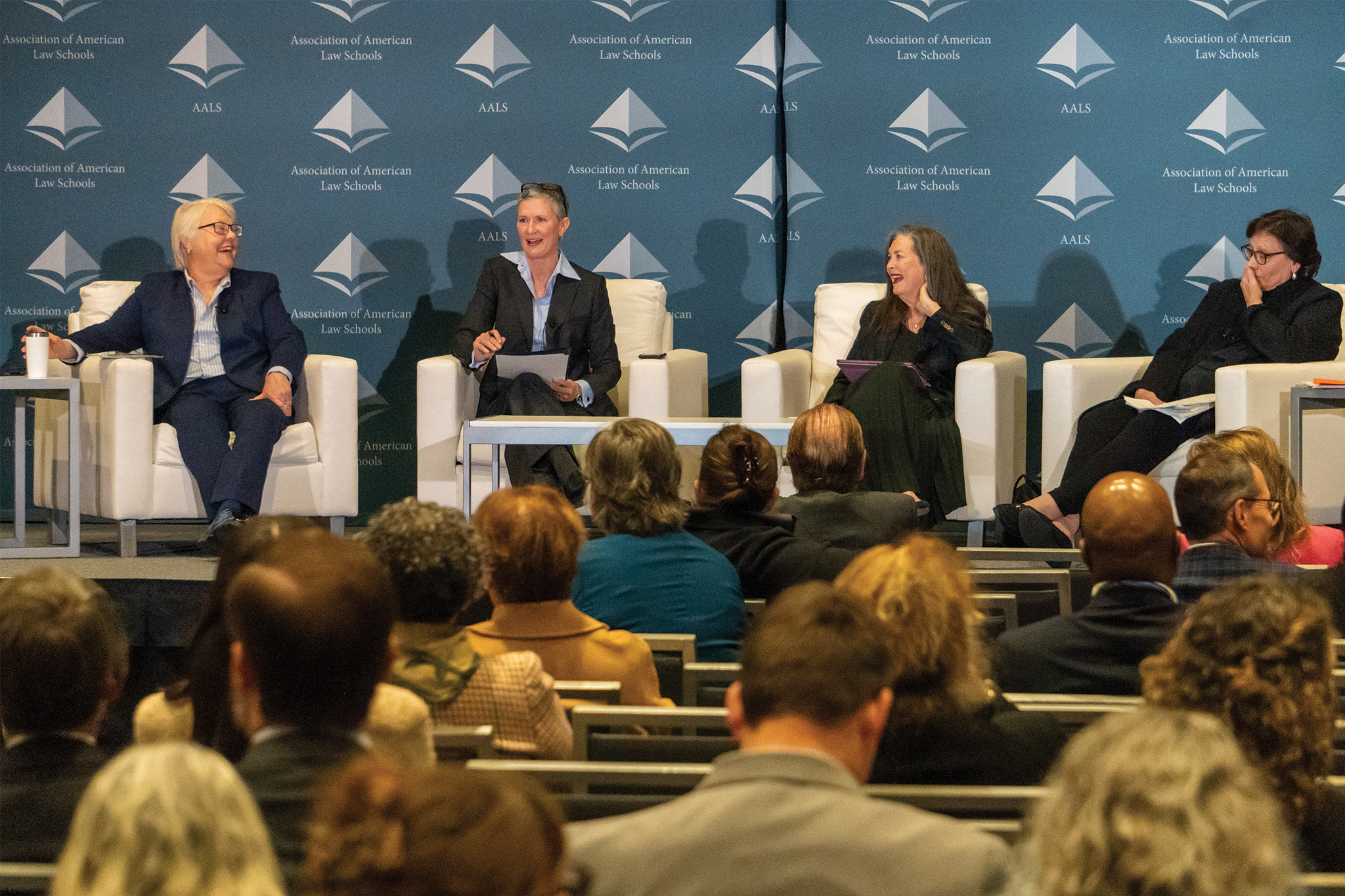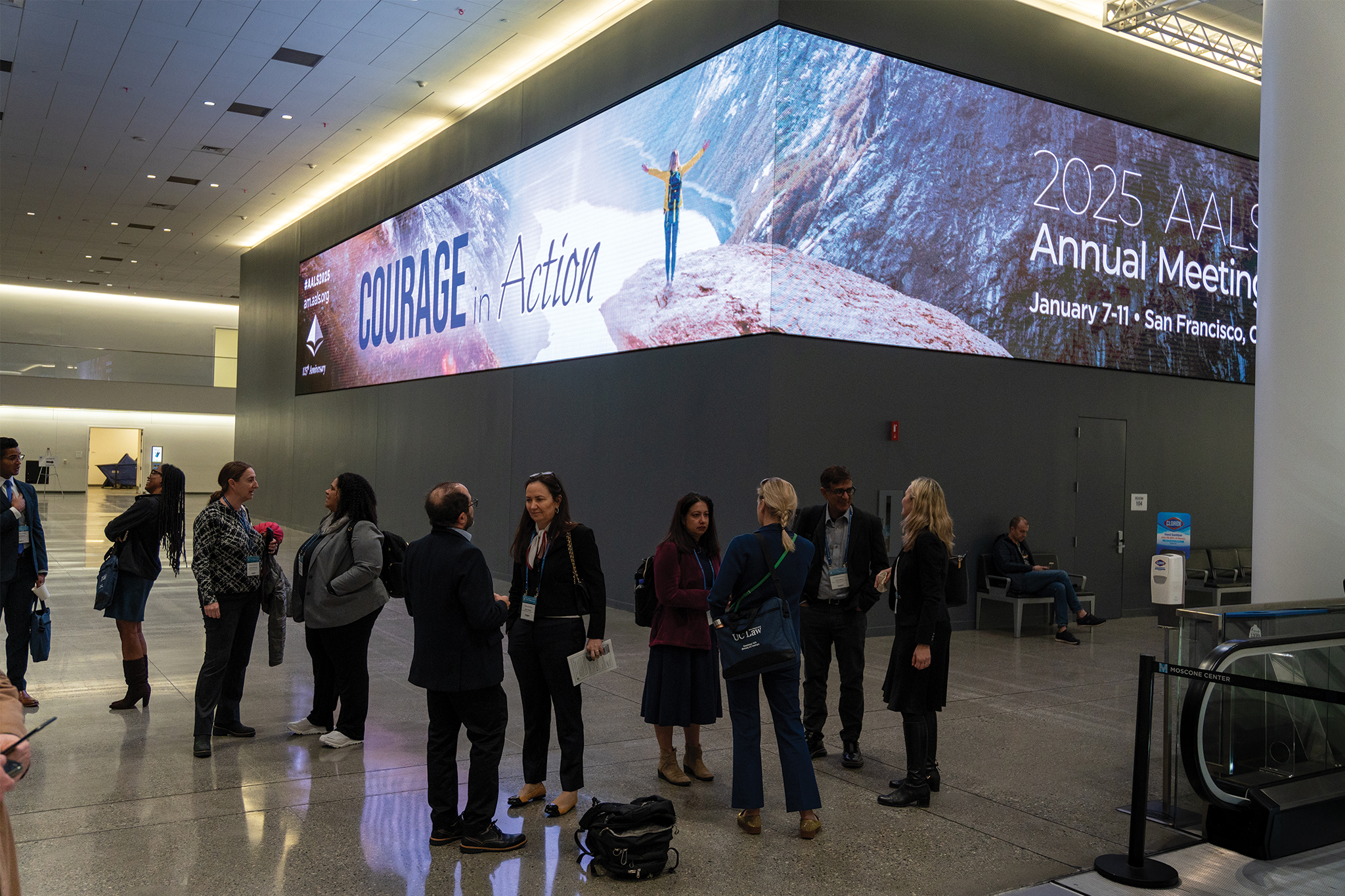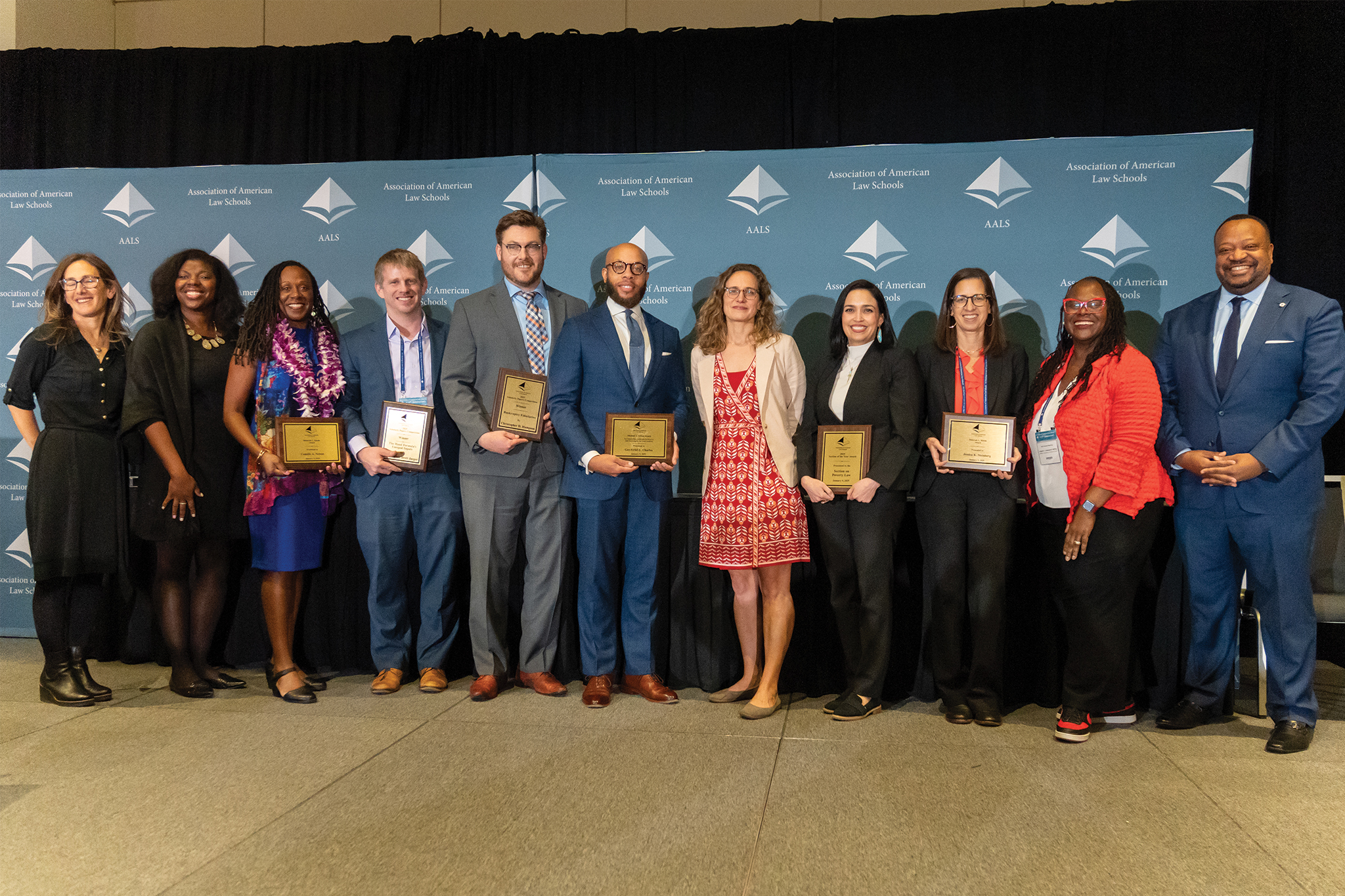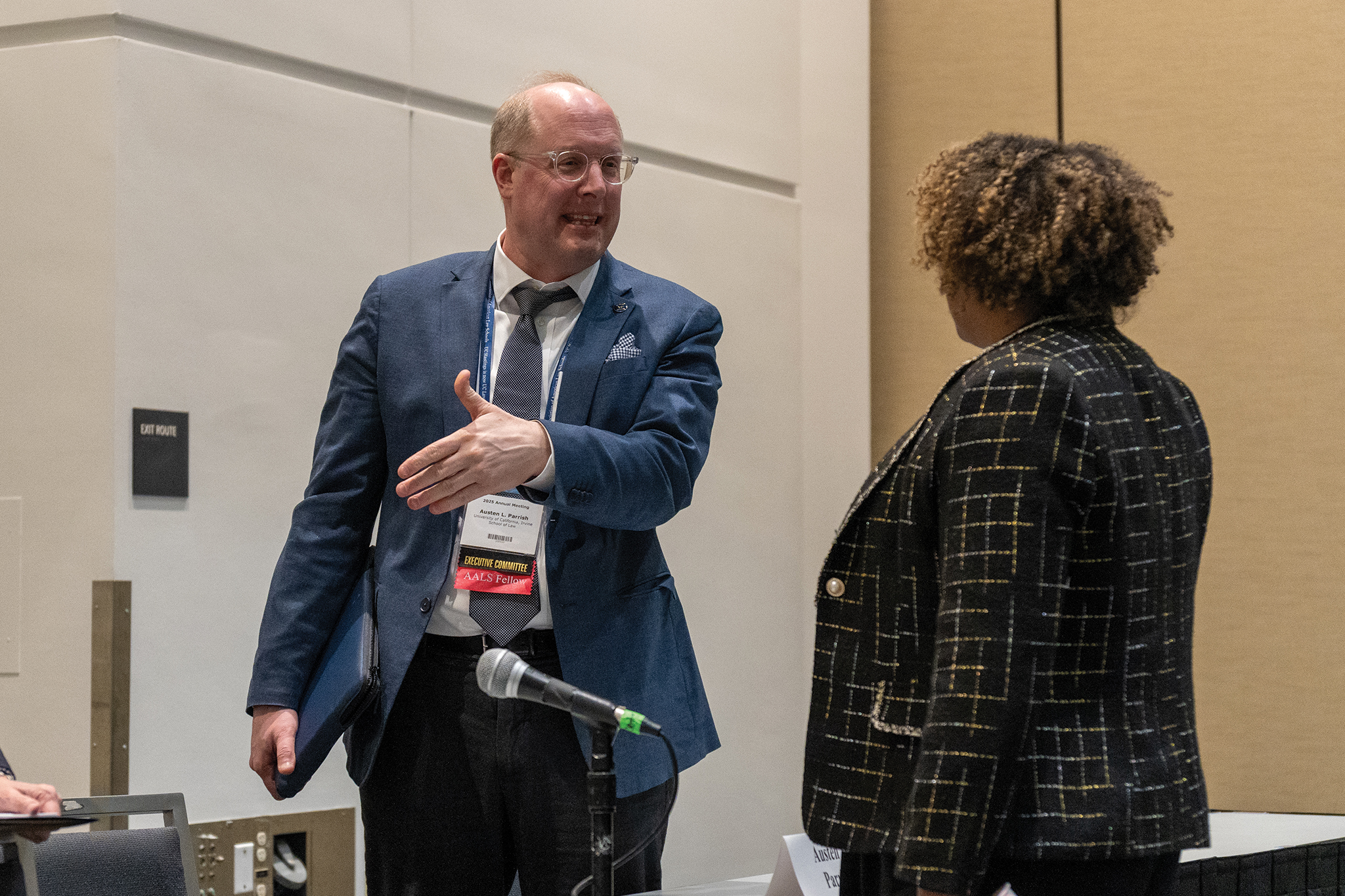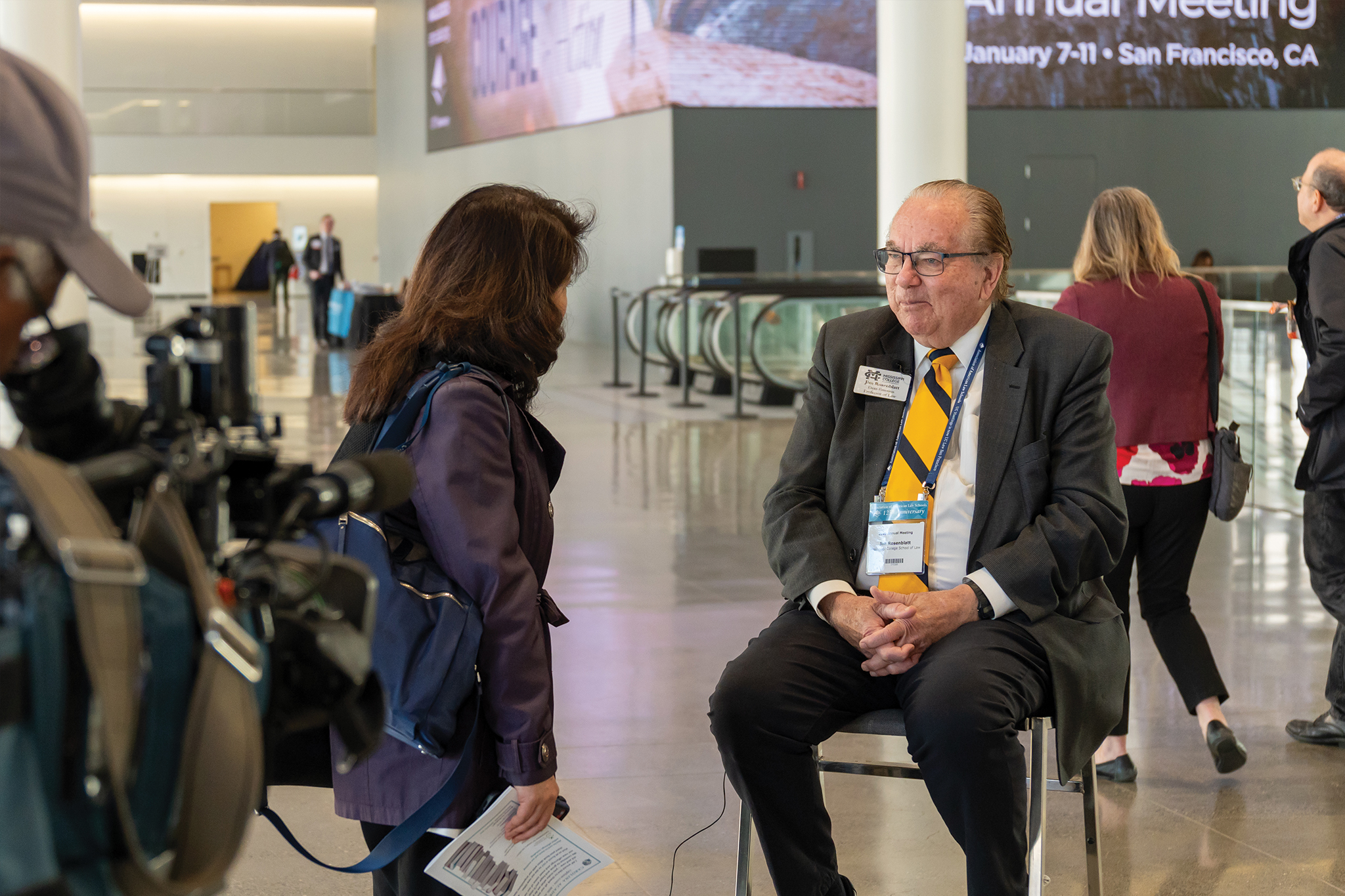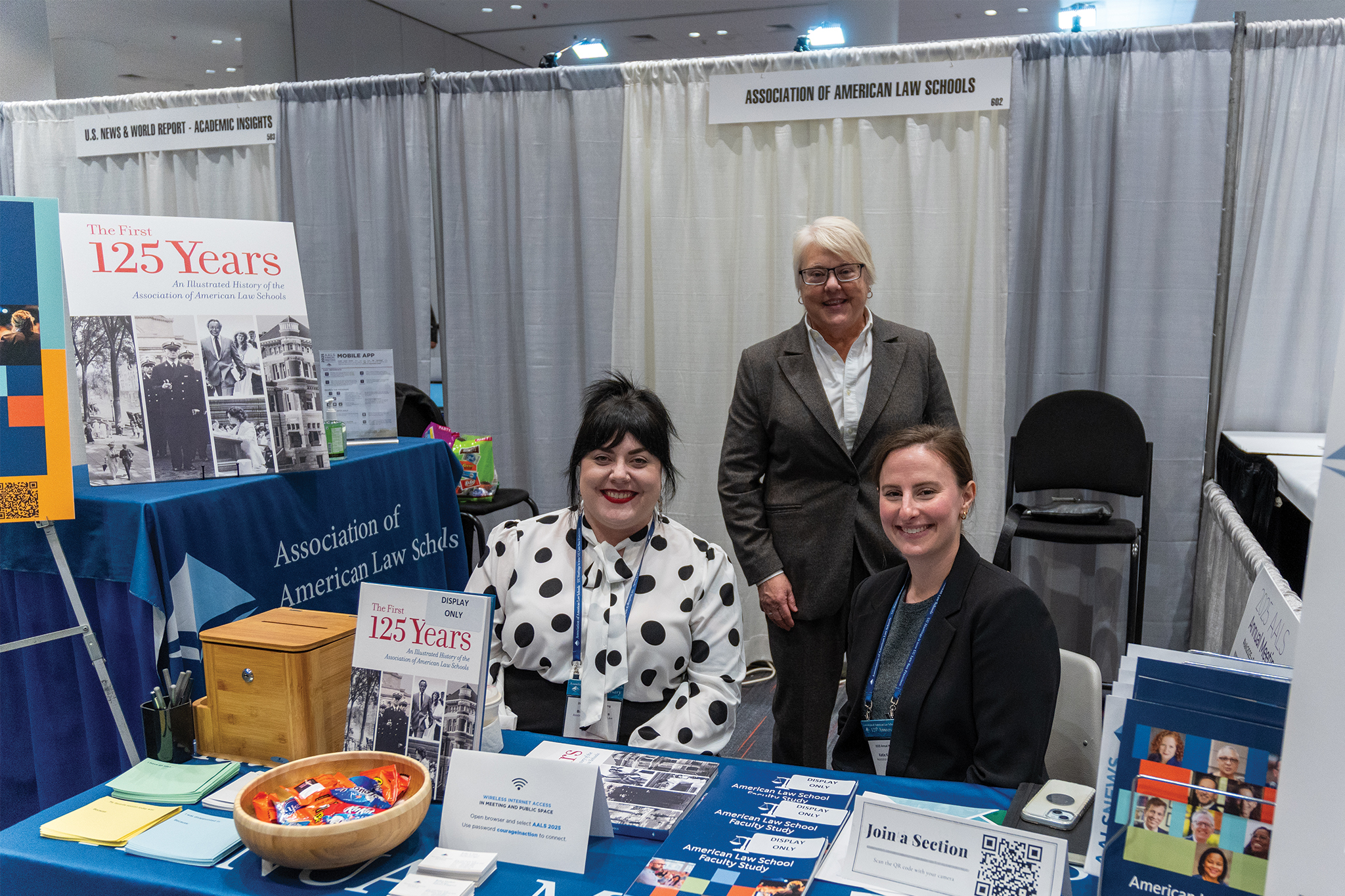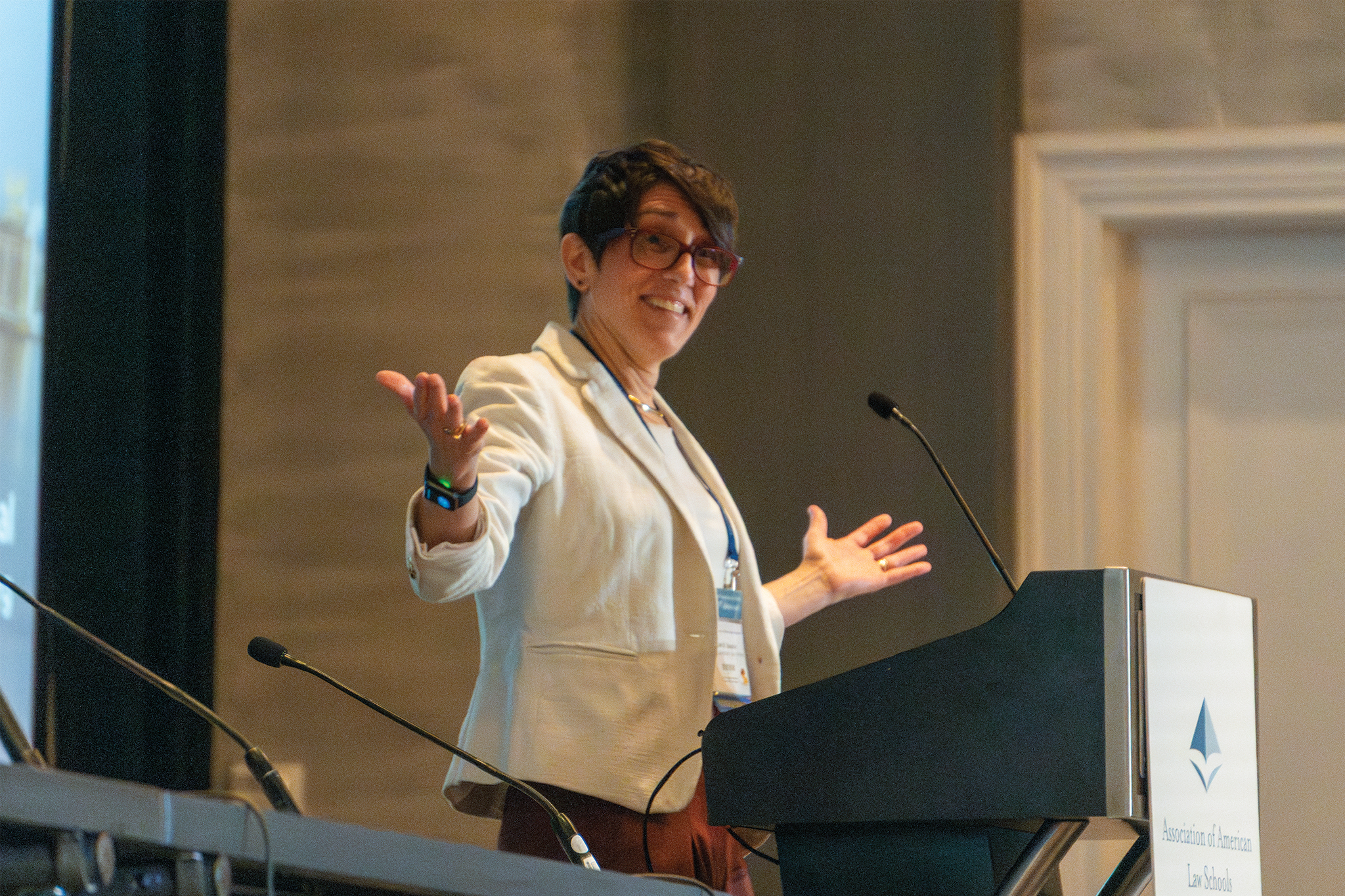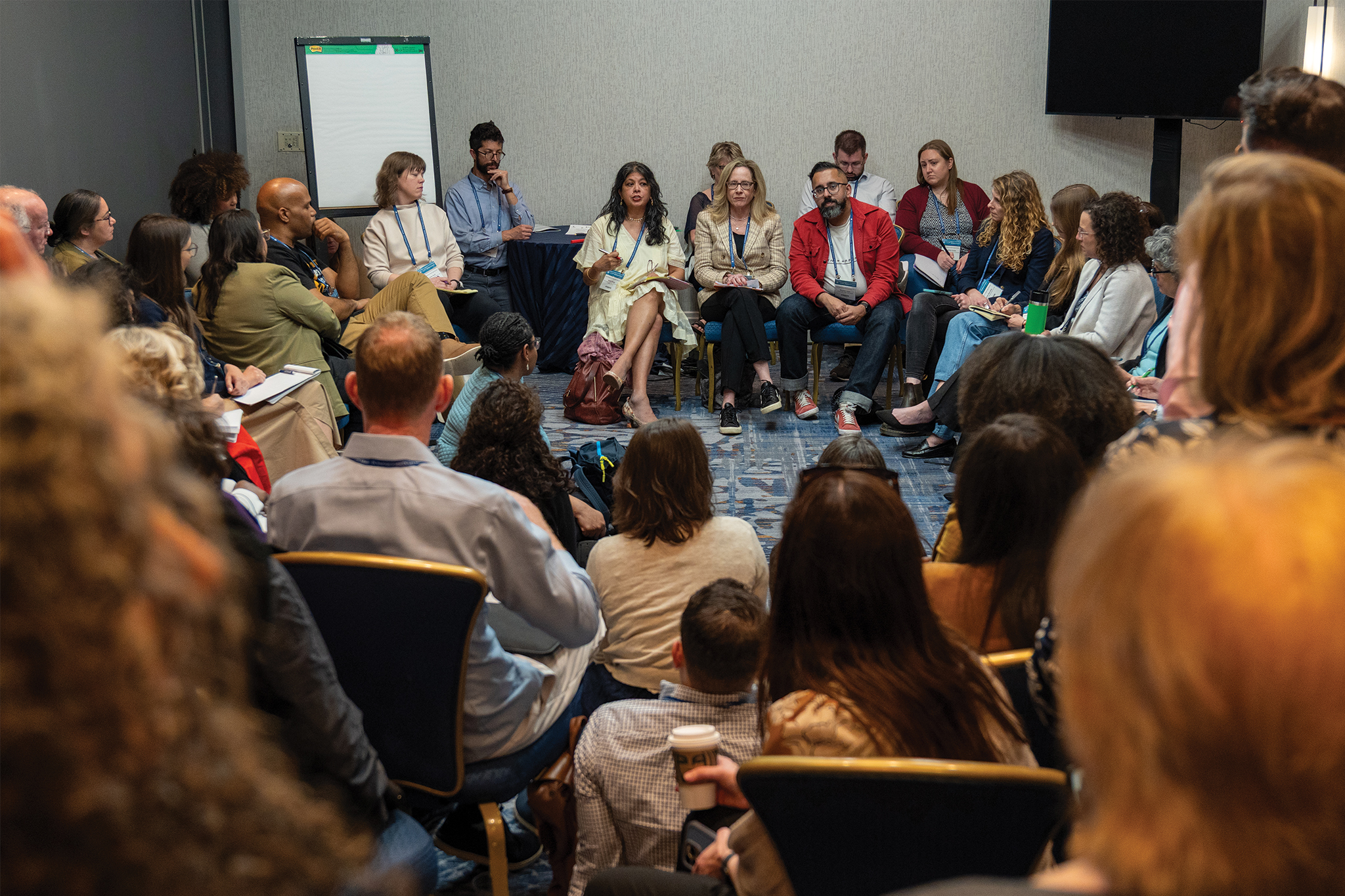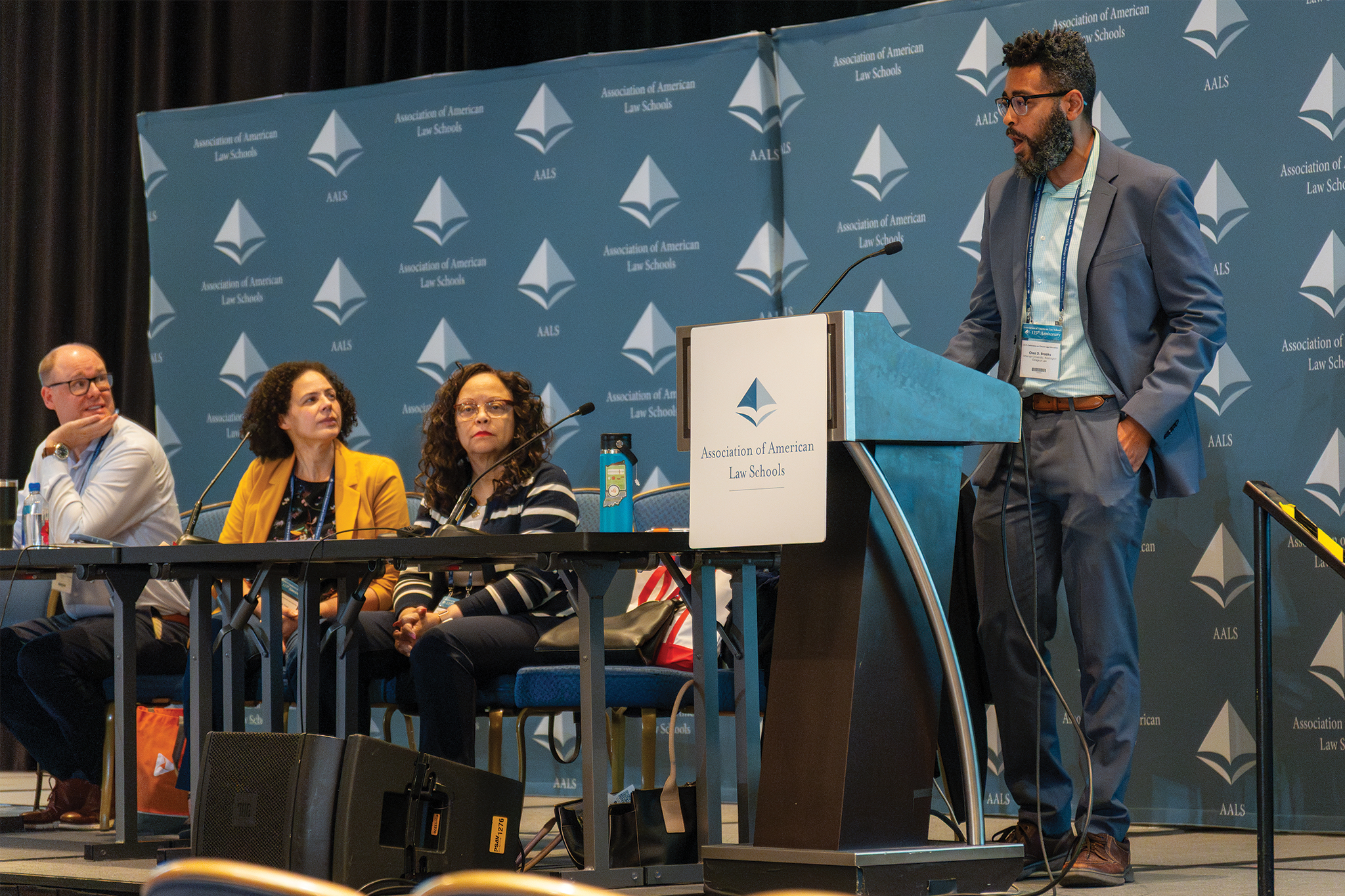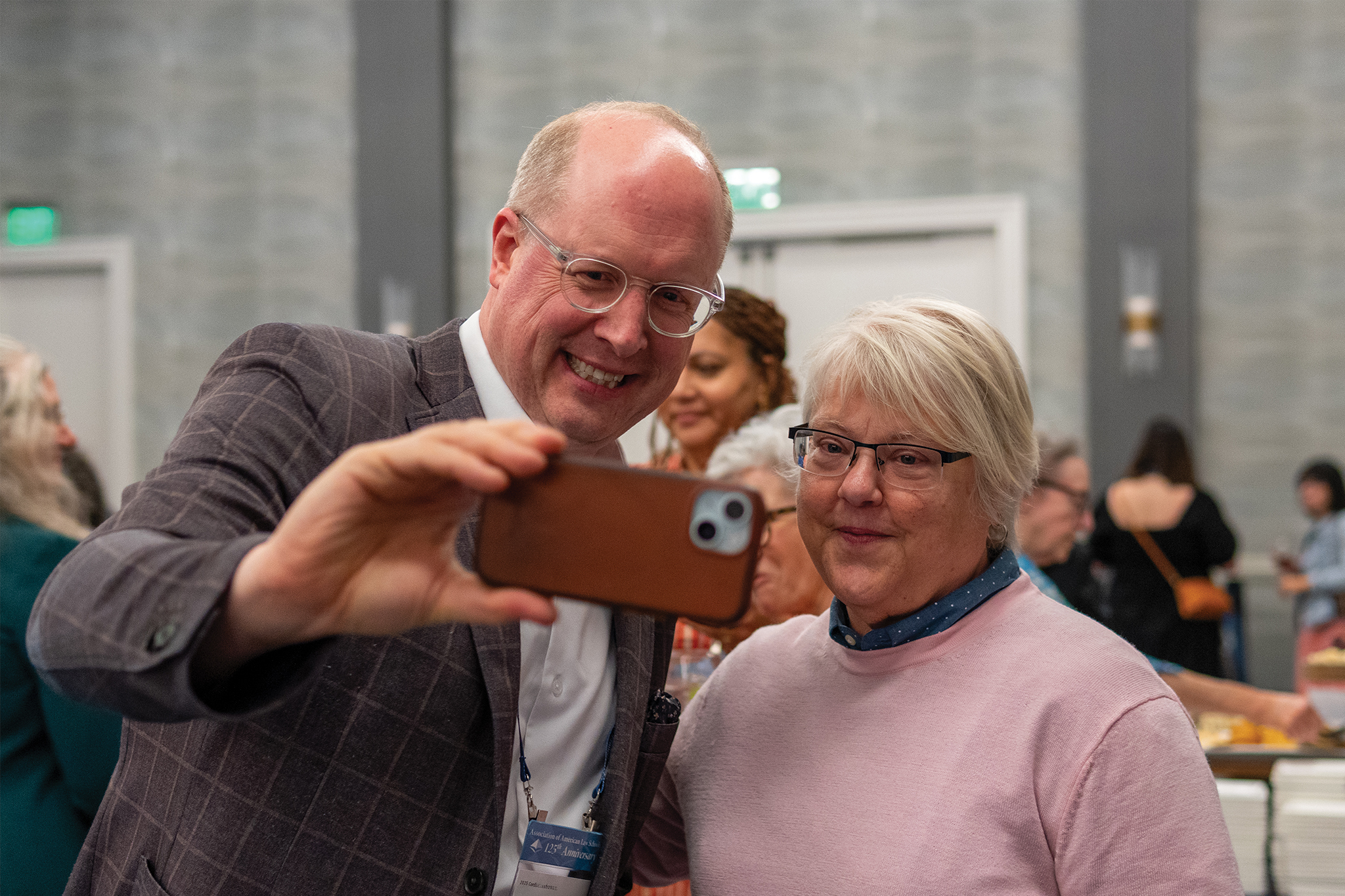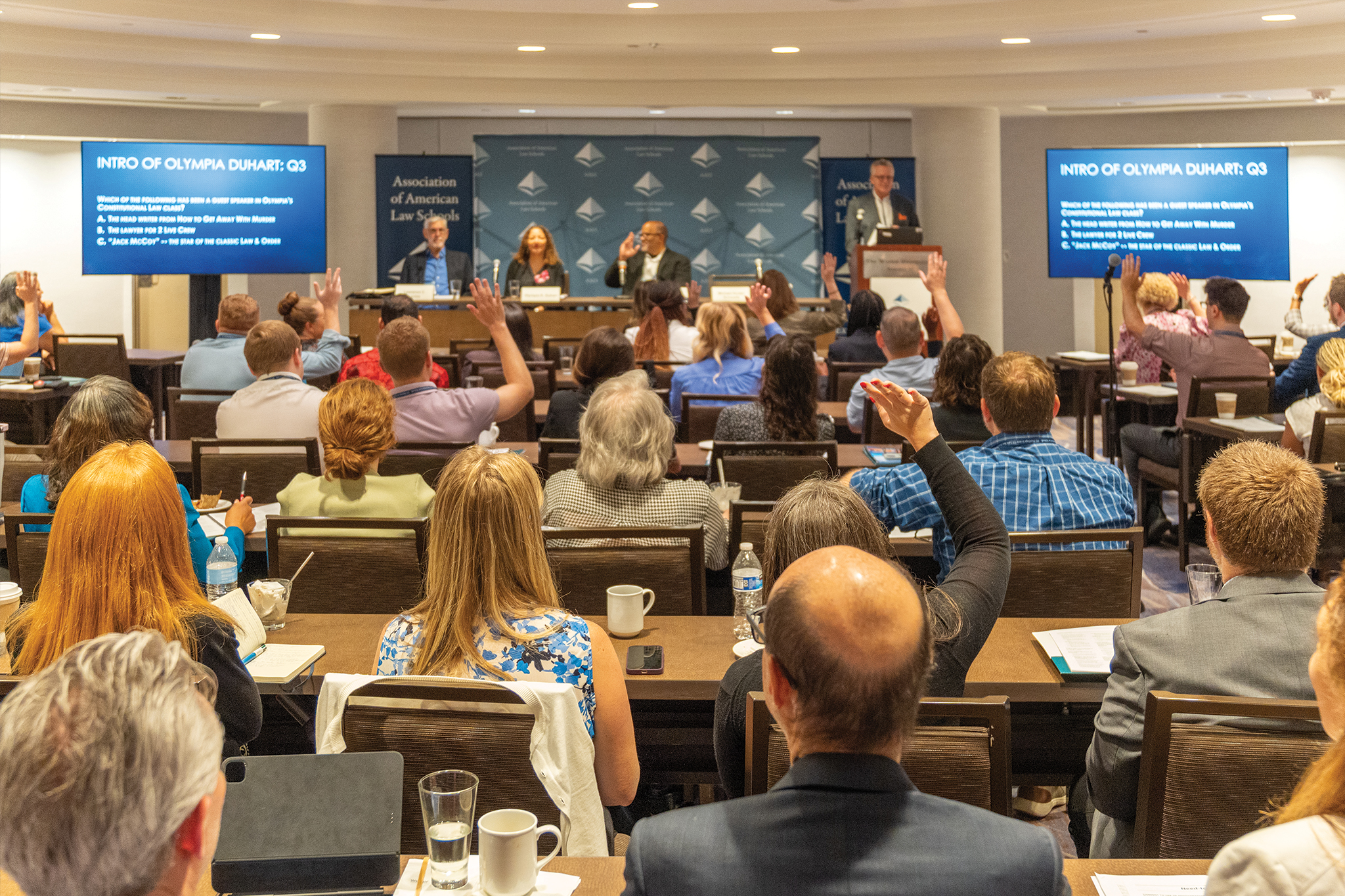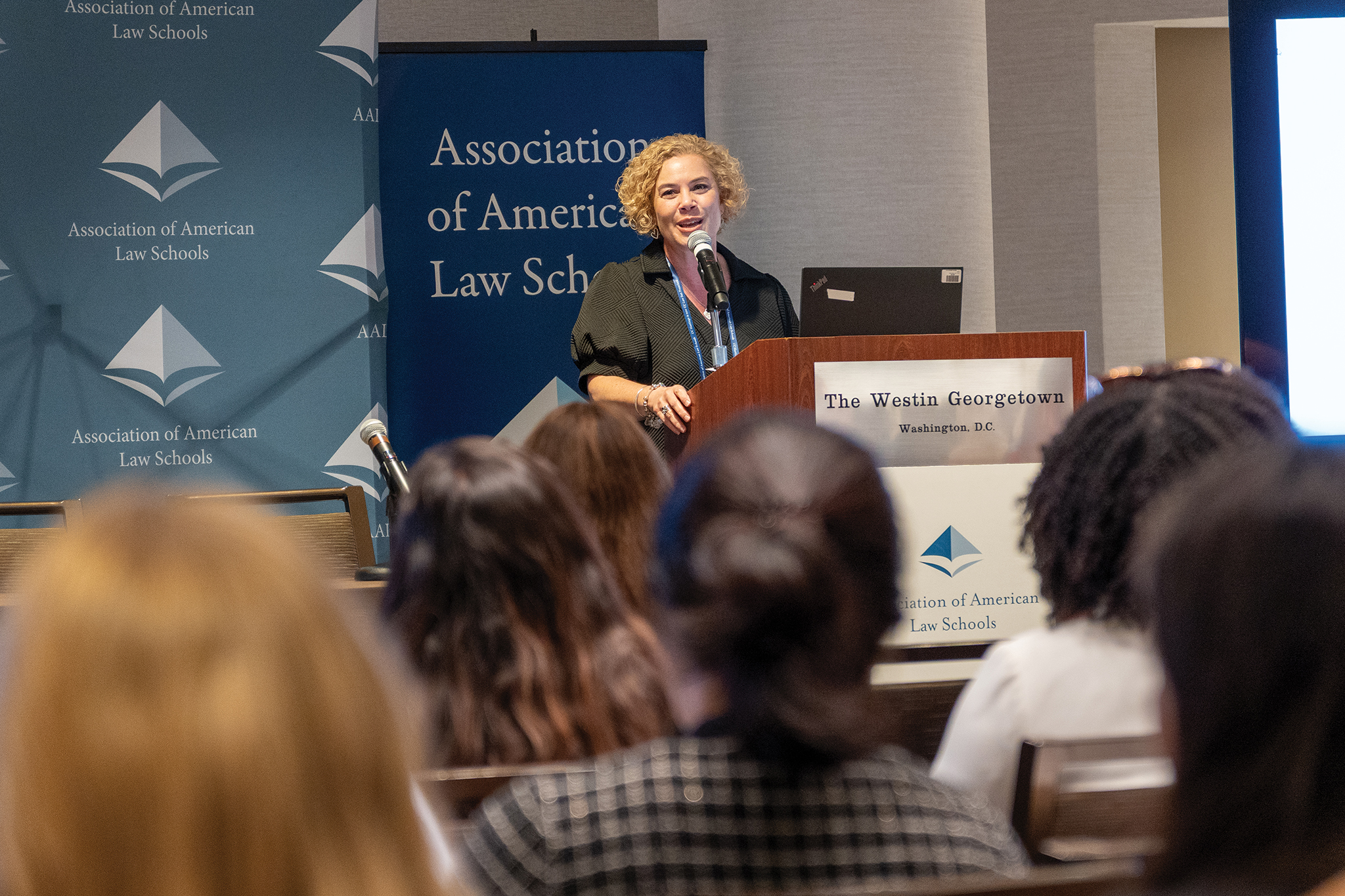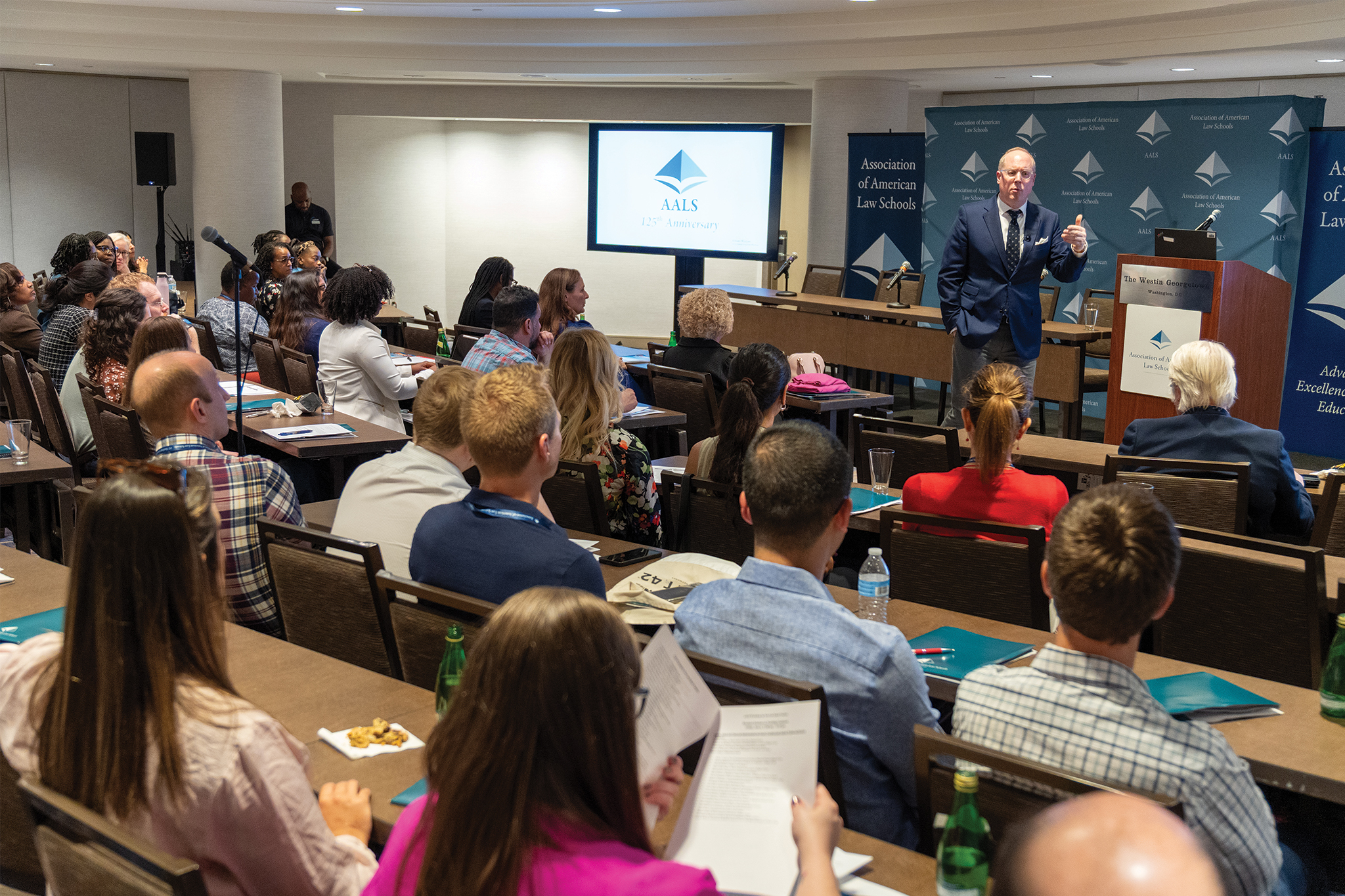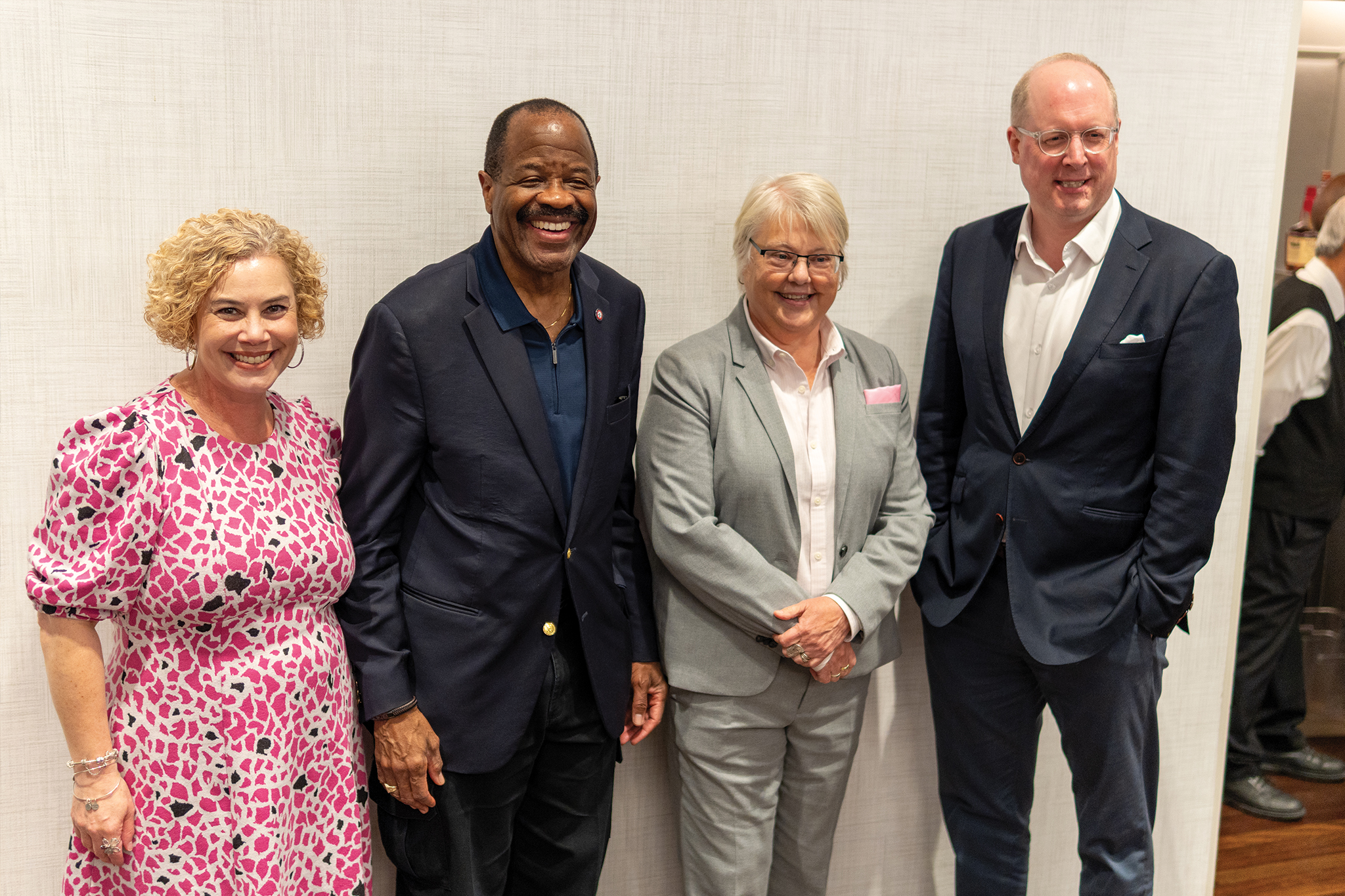By Austen Parrish, AALS President and Dean and Chancellor’s Professor of Law at University of California, Irvine School of Law
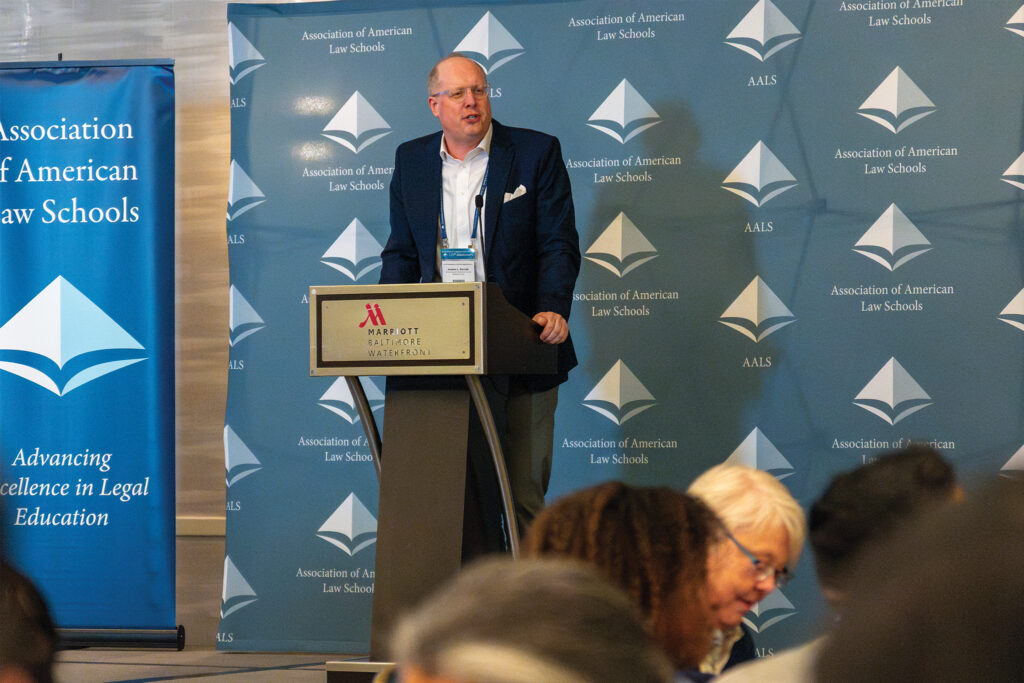
What a year. As we approach the 125th anniversary of the Association, and look back on our history, it’s unlikely that the founding members of AALS, who met on August 28, 1900 in Saratoga Springs, could have envisioned legal education as it exists today.
For many law schools, the first six months of 2025 have been some of the most unpredictable and disruptive in decades. The financial and other challenges to universities have reached new heights. From funding reductions to federal investigations, from expanded restrictions on international students to new accreditation regulations, from attacks on programs focused on non-discrimination and designed to ensure access to legal education for all to new federal loan borrowing and repayment legislation, it’s been an alarming and dizzying year. Schools have faced new state legislative mandates, we continue to see challenges with the bar exam, and some states are questioning whether the American Bar Association should continue as the national accreditor of law schools. This is on top of the disturbing rhetoric and intimidation of judges, the orders targeting law firms and the American Bar Association, the criticism of certain kinds of pro bono work, attacks on academic freedom and tenure, changes wrought by technology and artificial intelligence, continued political polarization in society, and concerns around the rule of law, and more.
With all that is going on, however, the work of law schools, and the contributions of our faculty, staff, and students continue. Without downplaying the significance of what’s happening nationally, recognizing how much law schools continue to make a difference is important. Many of our faculty, staff, and students are playing a role in the hot button topics of the day, but many more work quietly behind the scenes in other areas. In many communities, law schools continue to be one of the key providers of pro bono and clinical legal services. In the classroom, our colleagues make a major difference as teachers and mentors preparing the next generation of lawyers, and faculty research and scholarship continues its essential role in knowledge generation and helping understand developing legal and policy issues critical to society in a range of areas and cross-disciplinary fields.
Some of the contributions of schools and faculty are readily apparent in Association events of the past year. We began the year in San Francisco with the 2025 Annual Meeting. Braving wildfires, earthquakes, and airline flight delays—not to mention a last-minute switch to the Mascone Center—more than 2,100 of us joined together in San Francisco for over 250 panels and dozens of receptions and networking events. Past-President Melanie Wilson’s theme “Courage in Action” couldn’t have been timelier and the issues discussed more relevant. At the same time, the AALS commemorative publication—The First 125 Years: An Illustrated History of the Association of American Law Schools—was released. And it was the first annual meeting for our new Executive Director Kellye Testy, who joined as the Association’s eighth executive director after Judith Areen’s retirement after ten years of tremendous service in the role.
In March, many leaders of the Association, including from the AALS Deans Steering Committee, attended a national convening on the Future of Legal Education and Admissions hosted by the Committee on Legal Education and Admissions Reform (CLEAR). Led by CLEAR Chair, New Hampshire Chief Justice Gordon J. MacDonald, CLEAR consists of members from ten states, including seven Chief Justices. Dean Haider Ala Hamoudi was kind enough to host us at the University of Cincinnati College of Law. We were also joined by representatives from the Council of the ABA Section of Legal Education and Admissions to the Bar, AccessLex Institute, the Conference of Chief Justices, the Conference of State Court Administrators, the Law School Admission Council, the Law School Survey of Student Engagement, the National Association for Law Placement, the National Center for State Courts, the National Conference of Bar Examiners, and the State Justice Institute, among others. It was an important meeting that included critical discussions around how state courts, law schools, and the legal profession can continue to collaborate to do even more to reduce access to justice gaps and provide legal services where they are most needed. From that meeting, it was underscored that law schools need to do a better job conveying all the good they do for their communities and partner more closely with the bench and bar so that the innovations to teaching and learning that have occurred in legal education are better understood.
If January through March were busy, April was too. We owe a great deal of gratitude to Professor Lisa Bliss (Georgia State), who chaired the planning committee for the 2025 AALS Conference on Clinical Legal Education in Baltimore. Lisa—along with Eric Amarante (Univ. of Tennessee), Julie Dahlostrom (Boston Univ.), Davida Finger (Loyola, New Orleans), Elizabeth Ford (Seattle Univ.), Llezlie Green (Georgetown), Amanda Rivas (St. Mary’s), and Kelly Terry (Univ. of Arkansas)—put on a simply extraordinary program. It was largest AALS clinical conference ever, with more than 830 attendees. The conference theme, “Reexamining the Role of Lawyers and the Responsibilities of Clinical Teachers in Society,” was pitch perfect for the moment we live. I know when I left, I felt energized and inspired. The breadth and depth of what our clinics do, and the number of people they serve across the nation and beyond, is a point of pride for all legal education.
The 2025 Workshop New Law School Teachers in June had a similarly positive vibe. Joining us in Washington, DC were 100 faculty, where experienced law professors greeted faculty who had recently joined academia. The depth of talent was striking, with our new colleagues caring deeply about their teaching, their scholarship and clients, their mentorship of students, and their commitment to legal education and the profession. Dean Melanie Jacobs (Univ. of Louisville), who chaired the planning committee, ensured a jammed-packed and impactful program. The rest of the planning committee—Renee Nicole Allen (St. John’s), Nicole Booth (Univ. of Illinois Chicago), Heather Kolinsky (Univ. of Florida), and Michael Hunter Schwarts (Univ. of the Pacific)—were a dream team and helped us host some of the finest scholars, teachers, and institutional citizens from our member schools.
The summer has been busy as well. Just this month, AALS and the ABA co-hosted the New Deans’ Workshop, the 2025 Deans’ Workshop and Development Conference, and the Independent Law Schools Leadership Retreat in New York. Co-chairs Dean Anthony Crowell (New York Law School) and Dean Christiana Ochoa (Indiana University Bloomington), and their planning committee, put on an extraordinarily helpful program for the deans. Sessions explored, among other topics, legislative and regulatory trends, provided opportunities to hear from the ABA Council, and highlighted the ever-evolving role of law deans as stewards of justice, educational access, and professional integrity. Similarly, co-chairs Dean Megan Carpenter (UNH Franklin Pierce) and Associate Dean Darnell Hines (Northwestern), and their planning committee, ensured the Law School Development Conference was a great success. Many thanks to New York Law School for hosting the back-to-back conferences.
And the events are not stopping. Last week AALS hosted the 2025 Workshop for Adjunct Faculty with almost 300 attendees and later this month it will host the AALS Workshop for Appointments Committees. In August, Regional Pre-Faculty Recruitment Conferences will be held in Chicago, Los Angeles, San Francisco, Baltimore/Mid-Atlantic, Houston, and New York. In September, the virtual Faculty Recruitment Conference will occur, while the AccessLex Institute and AALS are joining together to host a major national convening on “The Access Imperative: Strengthening Legal Education Amid Challenges.” Held in Philadelphia, the “Access Imperative” convening will focus on the critical idea that providing access to legal education is core to legal education’s responsibility to the public. This is in addition to all the work being done by more than 100 AALS Sections, including dozens of webinars and other programs on the broadest range of topics important to law schools, with many more going forward. In October, the Journal of Legal Education will host a symposium on the Contemporary Views on Pioneering Legal Education Scholarship, which will focus on moderated dialogues between current scholars and authors of the earlier JLE-published foundational works. And, of course, AALS continues to spotlight the many upcoming symposia hosted by law schools throughout the nation.
Finally, we’re looking forward to seeing everyone in New Orleans for our next annual meeting. Scheduled from January 6-9, 2026, the annual meeting’s theme—Impact, Excellence, Resilience: The Enduring Contributions of Legal Education—is designed to allow us to better tell the story of legal education’s impact, and the many contributions that faculty, staff, and others have made. Requests for program proposals, in five categories, are now open, and Sections are also beginning their call for papers too. The conference will mark the end of my year as president and the inauguration of my tremendous successor, Dean Danielle M. Conway. It will be an important year to meet, and New Orleans is a wonderful city. We hope you make plans to join now.
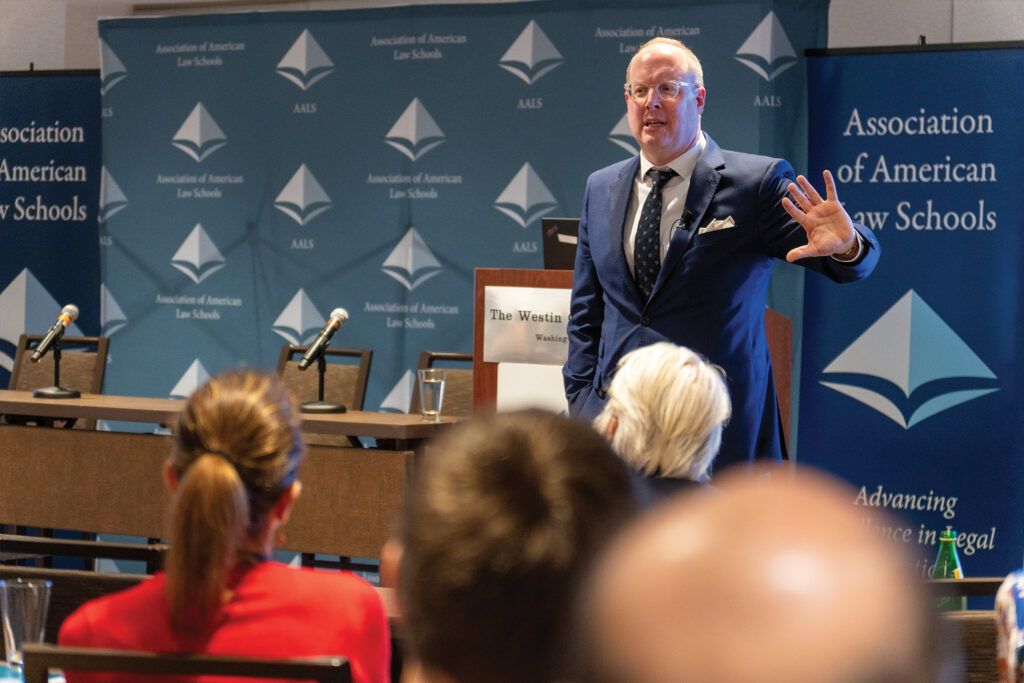
It’s been a great honor to serve as the Association’s President. The year so far, despite the challenges, have given me even greater appreciation for Kellye Testy and how much AALS and its wonderful staff do to support law schools and legal education. I have also been buoyed by so many faculty and staff colleagues who volunteer and make such important contributions in so many ways, including the critical work being done to support judges and courts, the legal profession, and the rule of law. I am similarly grateful for the tremendous leaders at other organizations that often collaborate with the Association for supporting and ensuring the excellence of U.S. legal education continues, including Chris Chapman at AccessLex Institute, Nikia Gray at the National Association of Law Placement, Sudha Setty at the Law School Admission Council, and many more.
I hope the summer has been going well, and I look forward to seeing everyone at upcoming events.


